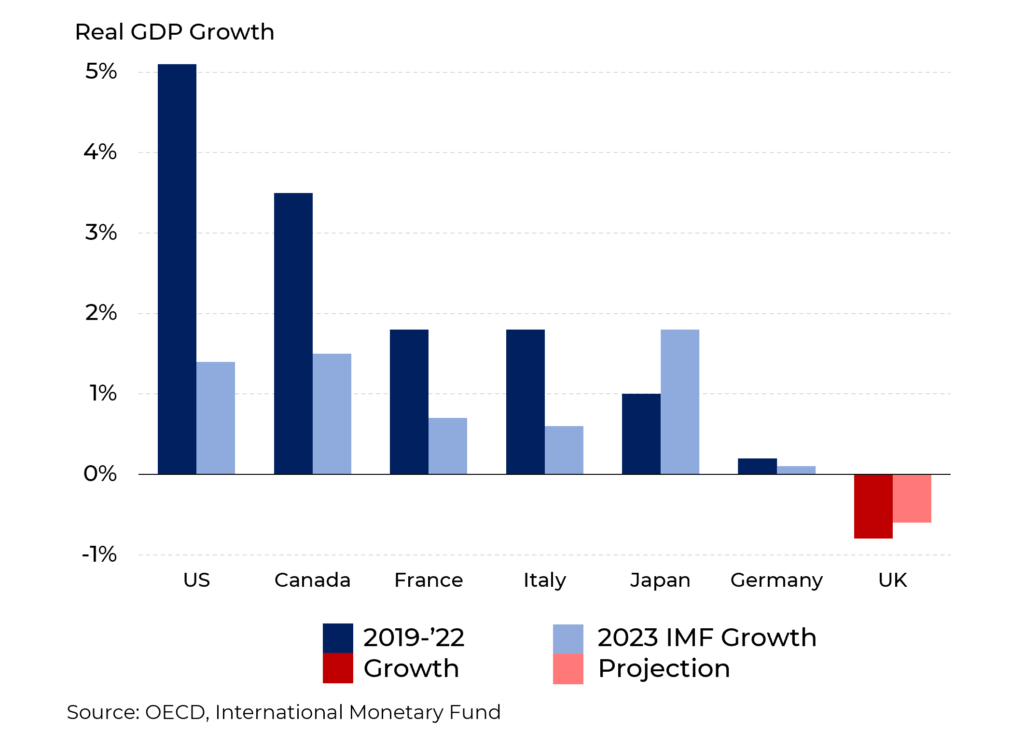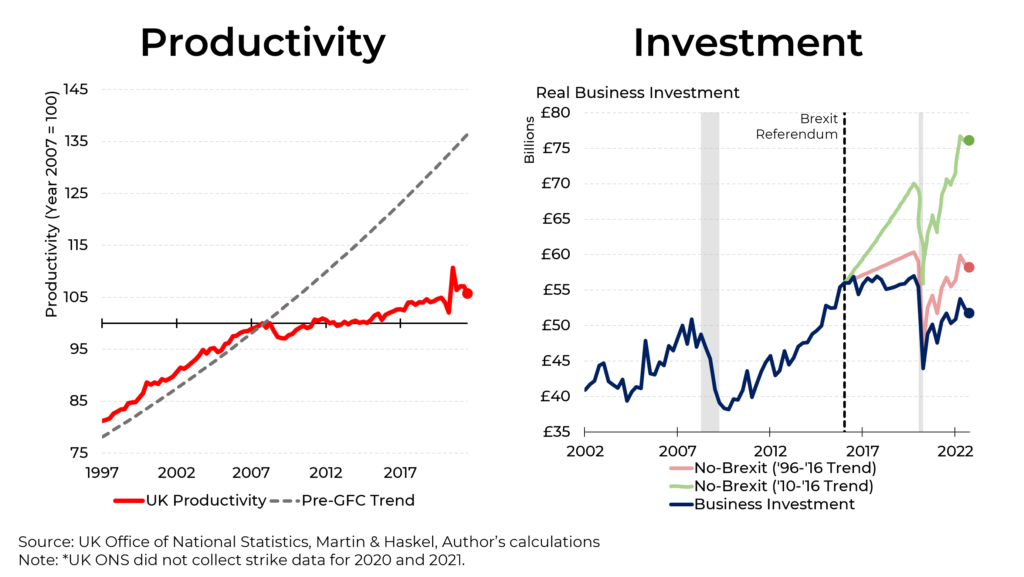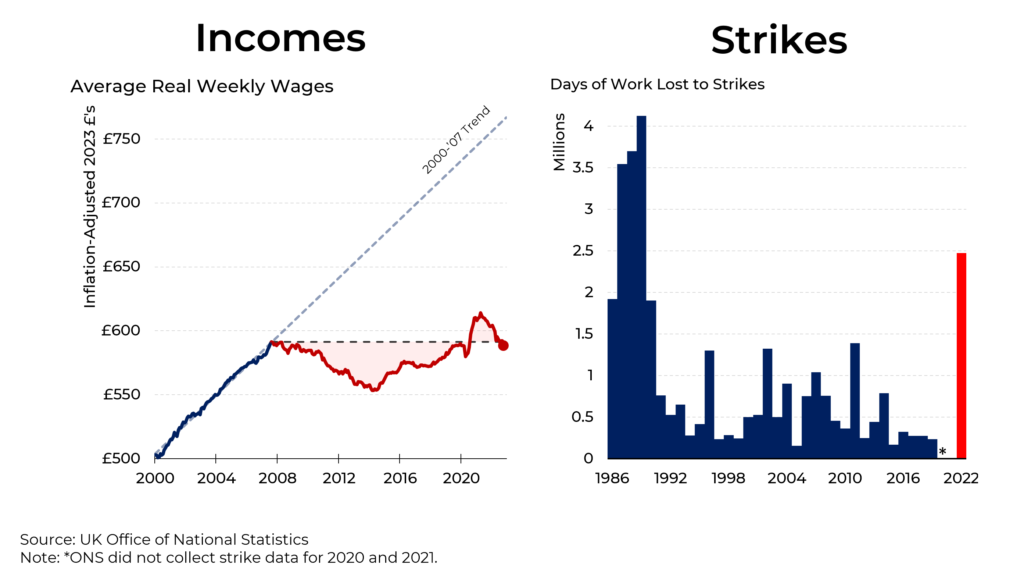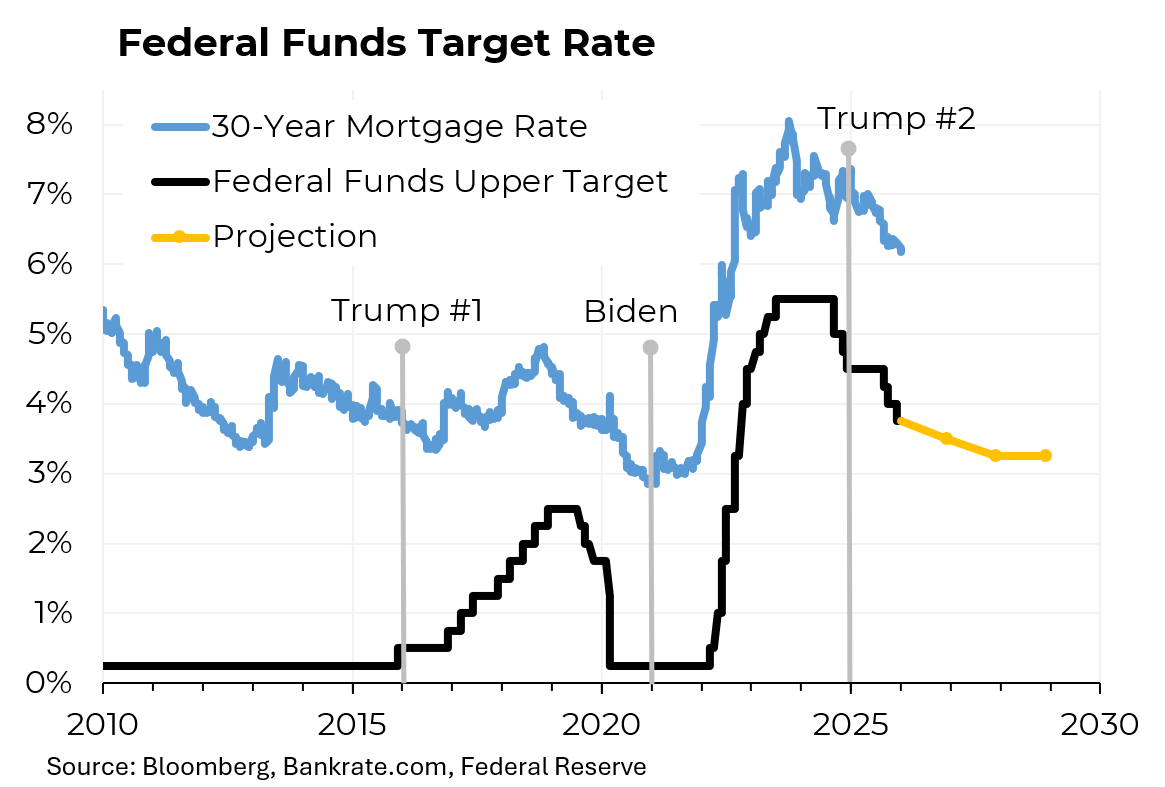While most of the developed world (notably, the United States) displays continued economic growth, Great Britain continues to lag, with a mix of villains behind its poor performance.
Covid and inflation notwithstanding, every other major country has been able to eke out at least a modicum of economic growth since the pandemic struck in early 2020 — growth that is expected to largely persist for the rest of the developed world. Even Germany, which has borne the brunt of the cost of the loss of natural gas imports from Russia, has remained in positive territory.
In addition to the world’s broader challenges, Britain has suffered from its own self-inflicted wounds, from Brexit to underinvestment to a National Health Service functioning so poorly that millions of work days have unnecessarily been lost to illness.
Meanwhile, inflation remains in double digits: Compared to a year earlier, food is up 16.7% and electricity charges have risen by 66%.
At the heart of the problem, Britain has become a low productivity, low investment country (not to the extent of what former Prime Minister Margaret Thatcher grappled with in the 1980s, but in a similar vein). Productivity, the lifeblood of a healthy economy, has barely grown (by 5.6%) since the 2008 financial crisis while it is 24% higher in the United States and 10.4% higher in Germany.
That’s partly because investment in Britain has also barely grown — and has actually shrunk (after adjustment for inflation) since Britain voted to leave the European Union. Had pre-Brexit growth rates in investment been maintained, investment today could be anywhere from 15% to 50% higher. By some measures, Brexit has cost the country about $1,200 per household, with the total likely to go higher.
Poor productivity inevitably leads to lower wages — after adjusting for inflation, incomes in Britain haven’t grown since 2008. In 1995, the gross domestic product per capita in Britain was 95% of Germany’s; it’s now 86%.
Until recently, British labor was quiescent. No longer. In 2022, 2.5 million workdays were lost to strikes, the most since 1989.








